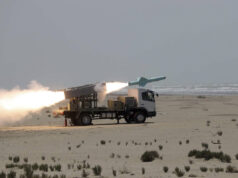.”
This month the United Nations (UN) Security Council is expected to renew the authorisation for international naval forces to carry out anti-piracy measures off Somalia’s coast. It is now 10 years since the first resolution was passed in 2008 to respond to piracy and robbery against humanitarian and commercial ships in the region.
At the time, piracy was considered a major threat to both local and global peace and security. Since then, and especially since 2013, the number of attacks and hijackings has dropped. Recent incidents have however raised concerns over the long-term sustainability of counter-piracy measures and whether enough is being done on land to increase the resilience of Somali communities and prevent a resurgence of piracy.
In the most recent attack on 16 October, four men attempted to board the bulk carrier MV KSL Sydney around 340 nautical miles (630km) off the coast of Mogadishu, opening fire on the ship. The pirates aborted the attack after private security guards on board returned fire. The European Union Naval Force, as part of Operation Atalanta, tracked down and destroyed a whaler ship believed to have been that of the attackers.
This is only the second piracy attack off the coast of Somalia reported this year, which is dramatically down from the 160 piracy incidents reported during the height of the problem in 2011. The long-term success of counter-piracy measures depends on a stable and unified Somali state. The attack’s failure shows that current counter-piracy tactics on board vessels, prescribed by the latest iteration of Best Management Practices, remain effective at preventing pirates from boarding and capturing vessels. The aim of these best practices is to address the vulnerabilities often exploited by pirates, thereby significantly increasing the risks for pirates.
The recent UN secretary-general’s report on piracy and armed robbery off Somalia’s coast attributes the low number of attacks to successful global collaboration and the ongoing work of regional organisations like the Contact Group on Piracy off the Coast of Somalia. The report also cites the continued enforcement measures of international naval forces, and the extensive military, naval and donor support of the international community. Navies, either in coordination with the European Union Naval Force and the Combined Maritime Forces, or deployed outside of them such as South Africa’s Operation Copper, help disrupt pirate activities.





